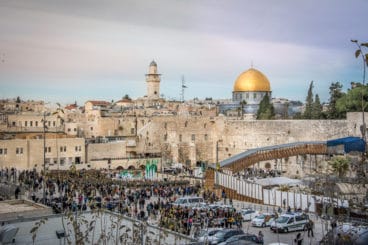
“Love God with all your heart, soul, mind and strength. And then, love your neighbor as yourself.” Mark 12:29
Jesus was no stranger to obedience. The King of Kings came quietly at his Father’s request. He lived among his broken and desperate people. He loved them and served them, literally to his death…upon a Roman cross. But through his resurrection, he left us with hope and faith to carry on in this troubled world. We know that evil will never have the final say. Ultimately God’s goodness will conquer.
Jesus desires obedience in the lives of his people. “If you love me you will obey my commands” (John 14:15). And his commands can be summed up in two straightforward steps: “Love God with all your heart, soul, mind and strength. And then, love your neighbor as yourself” (Mark 12:29).
In Jesus’ day, Roman soldiers were everywhere in the land where he lived and traveled. Their presence was meant to intimidate as much as keep order among the people. These armed soldiers had the authority to carry out their tasks with as much force as the situation required, or their hearts desired. Similarly today, as one travels on the borders of the green line and throughout the West Bank, it is difficult to ignore the significant power and presence of the Israeli Defense Forces (IDF).
What would Jesus say to a young, inscripted IDF soldier working at a checkpoint between Jerusalem and Bethlehem? Maybe she just turned 18 and would rather be in college with her friends. But she knows that this is part of the service required of her by law. She wants to serve her country, but may feel conflicted about the role the army plays in oppressing the Palestinian people. To refuse might bring public embarrassment to her family, time in jail for herself, and a future of restricted employment opportunities as an ongoing punishment for refusing to obey. She feels stuck between a rock and a hard place.
This young Israeli soldier might possibly be in the West Bank for the first time in her life. There, she sees large, ominous red signs posted at the entrances to the Palestinian controlled territories, warning Israelis to keep out of these “dangerous” places. Because of horrible persecutions like the Holocaust and the rhetoric of surrounding Arab nations against the State of Israel, she has been taught all through her schooling that there is a need to defend her nation. She is told to fear the surrounding Arab nations, and the Palestinians who live among them. Above all, she is reminded to “never forget, and never again” let the atrocities of history happen against her people.
She sees large, ominous red signs posted at the entrances to the Palestinian controlled territories, warning Israelis to keep out of these “dangerous” places.
What would Jesus say to this young woman? I think Jesus would deeply admire her obedient heart; he would admire her for sacrificing her personal desires to do what is “right” for her country. But he also would look beyond the tough exterior of her uniform and weapon. His penetrating and sympathetic gaze would see the honest fear deep within her soul.
I think Jesus would encourage the young girl to be a humble servant, first to her God and then to her government. He would remind her of God’s requirement of God’s people, written in the Torah, to “act justly, love mercy and walk humbly with your God” (Micah 6:8). He would model the kindness, respect, and dignity that should be extended to the Palestinians she meets each day during her work at the checkpoint. Ultimately, he would encourage her not to fear anyone, because they can only harm her body but not her soul. Her greater concern should be for God, who has eternal power over both (Matt. 10:28).
Dear God,
We are all responsible for how we live our lives and how we treat others. Young soldiers serving in Israel are in positions of great authority. Please help them to serve God first, with obedient hearts and humble spirits. Help them to use their positions to glorify you. May they treat the Palestinians they meet each day with kindness and give them the dignity they deserve. We know they are all your children. May they prove that your goodness is still alive in the ugly and hard places of this occupation.
In your holy name we pray, Amen.
Elli Atchison and Molly Lorden write for Prayers for the Holy Land, where this article first appeared.


